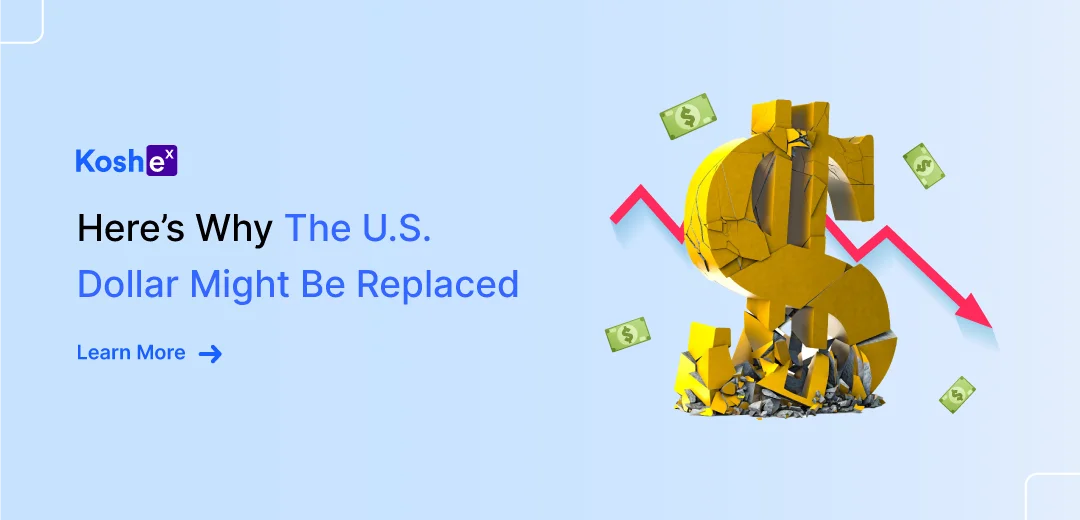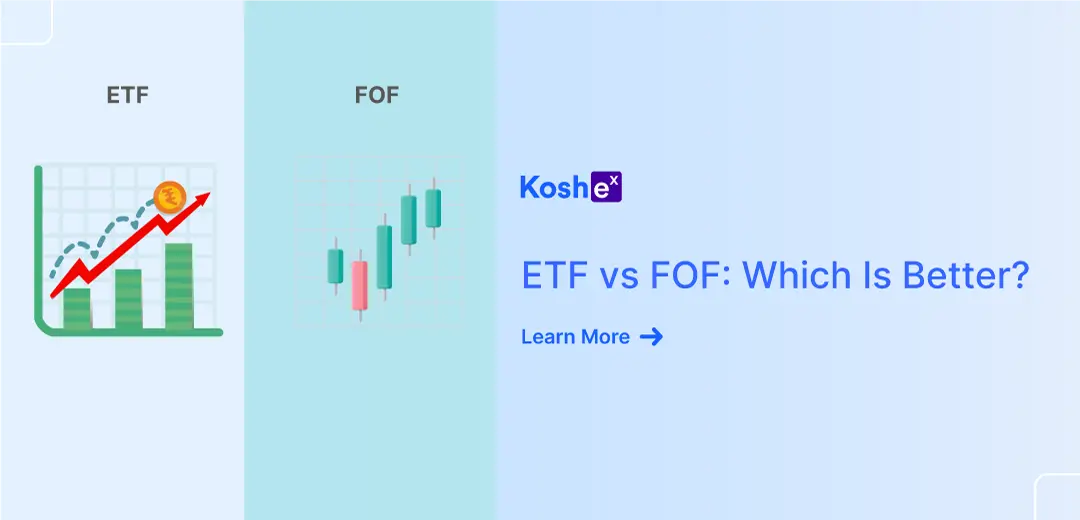Many currencies across the world are now in a race to become the next global currency, dethroning the U.S. dollar. The word de-dollarization has been thrown around a lot by media companies. In this blog, we take a look at how this happened and what holds in the future for the U.S. dollar.
What’s Happening With The U.S. Dollar?
At the end of March 2023, India introduced its new foreign trade policy, allowing the use of rupees in trade with countries facing dollar shortages or currency crises. Now, Malaysia has joined this squad as well. But why would you want to trade in rupees? It can improve global trade and support the interests of traders who use rupees. India already trades in rupees with Russia, Mauritius, Iran, and Sri Lanka.
Using rupees and ignoring the dollar doesn’t stop here. India has also expressed interest in exploring an alternative to the Society for Worldwide Interbank Financial Telecommunication (SWIFT) with Russia and China. If this comes into practice, it could allow India to trade with countries under U.S. sanctions using their own currencies.
The U.S. Dollar – For Credit & Debt
Countries didn’t decide yesterday to not use the greenback anymore. The de-dollarization movement has been going around for a few years. De-dollarization is the movement to reduce other countries’ reliance on the dollar – often with the goal of undermining the U.S.
For several decades, the U.S. has held a dominant position in the global financial system. According to the Bank for International Settlements (BIS), the dollar is a part of 88% of all international transactions. Also, oil, a key commodity needed by all economies, is priced in the dollar. Most commodities, such as gold, are also priced and traded in U.S. dollars.
So, the dollar has been a king for a while. Some countries had problems with the American currency in the past. By the early 2000s, America had transformed from once being the world’s largest creditor to becoming its largest debtor nation and the Federal Reserve started a reckless monetary policy that had lasted for the last two decades.
The Dislike Toward The Dollar
After the 2008 financial crisis, China complained about how the U.S. was devaluing the dollar via its large accumulation of debt and excessive printing of money. China began to voice its desire to introduce a new global financial system. But not many countries were interested in this idea.
But then, Russia waged war on Ukraine. Apart from imposing sanctions on Russia, the U.S. and NATO counties also froze its U.S. dollar reserves and blocked them from the SWIFT dollar transfer system. When this happened, countries that had lots of assets in dollars freaked out.
Unlike the U.S., the BRICS countries (Brazil, Russia, India, China, and South Africa) and much of the global south have been reluctant to cut their ties with Russia for many reasons. The reasons range from needing their oil, food, fertilizer, and military equipment, to taking advantage of the Wagner Group to fight against domestic anti-insurgency efforts.
Also, when the U.S. blocked imposed sanctions, many countries thought that the U.S. had too much power, and the countries, that once didn’t mind the supremacy of the greenback, were now worried that they might be next. China jumped at the opportunity and encourage most of the countries to find alternatives to the U.S. dollar.
We are not saying that the U.S. shouldn’t have taken any action against Russia. What we are saying is that the U.S. underestimated the global response to its action. Financial systems are built on trust but the U.S. weaponized its system, leading to other countries losing their trust.
Also, the recent aggressive rate hikes by the Federal Reserve didn’t help the dollar. Many central banks around the world also raised interest rates to limit capital outflows and a significant depreciation of their own currencies.
Can We Actually Break Up With The Dollar?
Countries are slowly doing it. According to the International Monetary Fund, the dollar’s weight in foreign exchange reserves fell from 71% to 60% since the turn of the century. A Bloomberg article writes that the U.S. currency now represents around 58% of total global official reserves, down from 73% in 2001. One thing is obvious here – the dollar in the global exchange reserves is going down.
There are many benefits to doing this as well. Former Brazilian ambassador to China, Marcos Caramuru, told CNBC that trading in local currencies “allow exporters and importers to balance risks, have more options to invest, to have more certainty about the revenues and sales”. Mark Tinker from ToscaFund Hong Kong told CNBC “Street Signs Asia” that countries moving away from using the dollar as the middleman in bilateral trade will “help them move up the value chain.”
The other thing that we need to note here is that when the non-U.S. economic blocs grow, it would encourage them to use their currencies. And the truth is that they are going to grow, with the IMF estimating that Asia could contribute over 70% to global growth this year.
Looking Ahead…
Countries have slowly started to use their own currencies for international trade in an attempt to avoid using the dollar. But many are saying that the dollar is still the king and breaking up with the greenback is not as easy as it sounds.
Stephen Jen and his Eurizon SLJ Capital Ltd. colleague Joana Freire wrote, as mentioned by Bloomberg, “The dollar’s role as an international currency won’t be challenged anytime soon as developing countries don’t yet have the ability to divest from the greenback for transactions due to its large, liquid and well-functioning financial markets”. They added, “…there may come a time when the rest of the world actively avoids using the dollar”.
The U.S. dollar is still used for majority of the global transactions, so it might take at least a decade before we see any drastic changes. However, the important part of this entire movement is that the countries are now ready to look for alternative currencies, a move that we could not have expected a few years ago. So, the U.S. being called a global power may come to an end soon and we have to see how the U.S. responds.









Leave a Comment